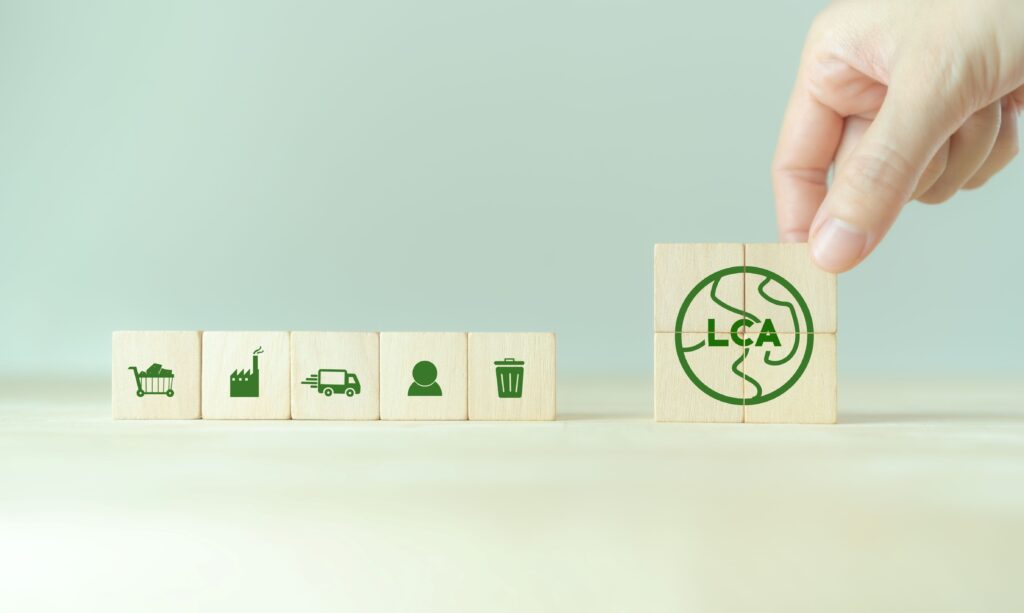LCAs and EPDs
Our Service Areas
Corporate Sustainability & ESG
Life Cycle Assessments (LCAs)
Life Cycle Assessments (LCAs) are a comprehensive method of evaluating the environmental impacts of products, services, or processes throughout their entire life cycle. This approach, often referred to as a “cradle-to-grave” analysis, encompasses every stage from raw material extraction to end-of-life disposal or recycling. By identifying the areas where the most significant environmental impacts arise, LCAs enable organizations to improve their environmental performance, regardless of their current standing.
In order to obtain a comprehensive understanding of an organization’s environmental impact, LCAs consider a wide range of impact categories. These categories typically include:
- Resource depletion and land use: This category measures the consumption of natural resources and the effects on ecosystems due to land use change.
- Greenhouse gases and climate change impact: This involves quantifying the emissions of greenhouse gases and their potential impact on global warming and climate change.
- Ozone depletion: This category evaluates the release of substances that contribute to the depletion of the ozone layer.
- Acidification: This involves the assessment of emissions contributing to acid rain and its effects on terrestrial and aquatic ecosystems.
- Eutrophication: This category measures the release of nutrients that can lead to excessive algal growth and oxygen depletion in aquatic systems.
- Toxicity and release of hazardous substances: This involves the assessment of the potential adverse effects of toxic and hazardous substances on human health and the environment.
- Waste generation: This category measures the amount and type of waste generated throughout the product’s life cycle.
By conducting an LCA, companies can identify and address their most significant environmental impact areas when feasible. It is crucial to maintain transparency and clearly communicate the limitations of each project, as the scope and analyzed area increases, so does the uncertainty of the results.

Environmental Product Declarations (EPDs)
Environmental Product Declarations (EPDs), while closely related to LCAs, serve a different purpose. Both LCAs and EPDs provide information about the environmental impact of a product throughout its life cycle. However, LCAs are typically conducted for internal communication and management, while EPDs are designed for external stakeholders, investors, and customers.
EPDs are standardized documents that communicate the environmental performance of a product or service based on the results of an LCA. These declarations are verified by a third-party to ensure credibility and consistency. By presenting information in a standardized format, EPDs enable organizations to compare their performance against competitors and industry benchmarks.
In addition to facilitating performance comparisons, EPDs are made publicly available, allowing organizations to communicate their environmental performance and progress to stakeholders and customers. This transparency can help build trust and demonstrate an organization’s commitment to sustainability.
Insights for Improvement and Sustainability Strategy
DGE Finland’s team is dedicated to providing thorough and realistic LCA and EPD assessments for your organization. By working with us, you can gain valuable insights into your company’s environmental impact and identify areas for improvement. This information can guide your organization’s sustainability strategy and enhance your reputation.
By working with DGE Finland, you can ensure your organization’s commitment to sustainability is reflected in your actions and communications, ultimately benefiting both your company and the environment.
Udvalgte referencer



